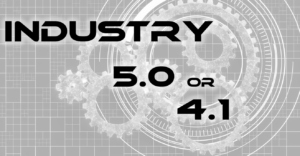Like other economic sectors affected by the COVID-19 pandemic, the manufacturing sector has had to reevaluate past business strategies to ensure they remain on track to survive and thrive in the post-pandemic environment. Nick McGrane, Managing Director at K3 SYSPRO, asserts cognitive technologies (often referred to as artificial intelligence (AI), machine learning, and/or cognitive computing) will play a central role in manufacturing’s future. “Talk of Artificial Intelligence in manufacturing,” he writes, “has been around for years. But before the pandemic, the industry had started trialing and deploying new solutions at a fairly slow, careful pace. That has now changed. AI is no longer seen as a ‘nice to have’ and has become business-critical. Supporting this, a recent BCG report highlighted that “AI will be a must in the post-COVID world.”[1] The reason BCG analysts insist the manufacturing sector will require cognitive technologies is because the pandemic created a paradigm shift and cognitive technologies can help companies understand this new business landscape. They explain:
“We believe that the application of artificial intelligence will be immensely valuable in helping companies adapt to these trends. Advanced robots that can recognize objects and handle tasks that previously required humans will promote the operation of factories and other facilities 24/7, in more locations and with little added cost. AI-enabled platforms will help companies better simulate live work environments and create on-demand labor forces. Through machine learning and advanced data analytics, AI will help companies detect new consumption patterns and deliver ‘hyperpersonalized’ products to online customers. The most successful use cases will be those that seamlessly combine AI with human judgment and experience.”[2]
For nearly a decade, analysts have been referring to the rise of “smart factories” as Industry 4.0, a new industrial revolution era. Hunter Ashmore notes, “Machine learning is one of the main technological advances that is allowing Industry 4.0 to gain a foothold in businesses and on factory floors. Machine learning is essentially a form of artificial intelligence that allows systems and algorithms to automatically improve based on experience.”[3]
Why cognitive technologies are a “must have” for Industry 4.0
Ashmore asserts, “Thanks to ML, there has been massive progress in the manufacturing space in the form of optimization. By optimizing systems in factories to be compatible with ML, manufacturers are able to create what is called a ‘smart factory’. Using smart devices, machines, and systems, smart factories are digitized factories that continually monitor production and collect data. This data collection provides manufacturers with advanced analytics, allowing companies to make more informed decisions.” And Bain analysts, Michael C. Mankins and Lori Sherer (@lorisherer), assert if you can improve a company’s decision-making you can dramatically improve its bottom line. They explain, “We know from extensive research that decisions matter — a lot. Companies that make better decisions, make them faster and execute them more effectively than rivals nearly always turn in better financial performance.”[4]
Although machine learning by itself has value, freelance writer Preetipadma Khandavilli insists much of the data businesses need today also requires context to be of real value. That’s why she believes cognitive computing platforms are essential in today’s business environment. She explains, “Most of the data dealt with today are unstructured and scattered in nature. This data comes from various IoT devices; satellite feeds, social networking sites, purchase transactions and more. Thanks to Big Data, higher computational speeds and the increased availability of analytics tools, we can run analytics [on] the data in real-time, anywhere, anytime. While these analytics provide a competitive advantage for businesses, they lack knowledge-based insights to help in decision-making. In other words they are mathematical in nature. [Fortunately,] we now have cognitive analytics that exploit massive advances in High-Performance Computing using the combined force of AI and data analytics practices.”[5]
Finding opportunities and overcoming Industry 4.0 challenges
Matt Newton, Senior Portfolio Marketing Manager at AVEVA, believes a healthy skepticism about cognitive technologies is holding many companies back. He writes, “Many [vendor] companies are continuing to fuel their [clients’] initial skepticism of AI and ML by providing poorly planned pilot projects that often land the company in a stalled position of pilot purgatory.”[6] He adds, “A way to overcome these challenges is to demonstrate proof points to the customer. This means showing how AI and ML technologies are real and are exactly like we’d imagine them to be.” Many analysts recommend you find quick wins to demonstrate the value of cognitive technologies. Deloitte analysts suggest companies that take the right approach will be successful.[7] They write, “To help decide where to go in your digital and analytics journey, follow these steps:
- Think big. Size up your opportunities by finding the biggest needs across your value chain. Many manufacturers are using cognitive technologies to improve preventive maintenance and optimize other processes. Happy Patel, a digital marketing executive at Space-O technologies, notes, “AI can help with predictive maintenance and preventive measures in the manufacturing industry. Forecasting is another major help that AI-driven systems can offer to this industry.”[8]
- Start small. “Prioritize your opportunities based on where you can gain value quickly.”
- Scale fast. “Once you’ve achieved some early successes in a pilot environment, design a governance framework and rollout strategy for broader implementation. Then socialize your plan across the company.”
At Enterra Solutions®, we call this a “crawl, walk, run” approach to implementation. This approach allows solutions to be tweaked as they scale. Patel suggests opportunities to use cognitive technologies to improve manufacturing can be found in the following areas: Improving and personalizing manufacturing; detecting defects for superior quality; improving predictive maintenance systems; automating processes; and improving sustainability. Janakiram MSV (@janakiramm), an analyst, advisor and an architect at Janakiram & Associates, predicts Industry 4.0 won’t be fully mature until cognitive technologies and the Internet of Things blend to become the AIoT. He writes, “The convergence of AI and IoT will redefine the future of industrial automation. It is set to lead the Industry 4.0 revolution. … While IoT is the digital nervous system, AI becomes the brain that makes decisions which control the overall system. The lethal combination of AI and IoT brings us AIoT — Artificial Intelligence of Things — that delivers intelligent and connected systems that are capable of self-correcting and self-healing themselves.”[9]
Concluding thoughts
McGrane concludes, “It’s now time for businesses to seriously assess the role AI can play in manufacturing; to understand how it is already helping, where it will deliver added value in the new normal and what cultural and organizational changes will be needed to make deployments a success. Manufacturing businesses with AI technology at their core are able to improve customer service and optimize operational processes.” Ashmore predicts, “Adopting Industry 4.0 techniques and technologies will bring about immediate gains in efficiency and savings that don’t just measure in the millions but rather the hundreds of millions.”
Footnotes
[1] Nick McGrane, “AI in Manufacturing: The New Reality,” IT in the Supply Chain, 13 November 2020.
[2] François Candelon, Tom Reichert, Sylvain Duranton, Rodolphe Charme di Carlo, and Midas De Bondt, “The Rise of the AI-Powered Company in the Postcrisis World,” Boston Consulting Group, 2 April 2020.
[3] Hunter Ashmore, “Industry 4.0 And The Impacts Of Machine Learning On The Manufacturing Industry,” AiThority, 17 November 2020.
[4] Michael C. Mankins and Lori Sherer, “Creating value through advanced analytics,” Bain Brief, 11 February 2015.
[5] Preetipadma Khandavilli, “Understanding The Role Of Cognitive Analytics In Industrial Settings,” Analytics Insight, 10 November 2020.
[6] Matt Newton, “Overcoming AI and Machine Learning barriers in manufacturing,” Manufacturing Global, 10 April 2020.
[7] Staff, “Cognitive supply chain and a new way of working,” Deloitte.
[8] Happy Patel, “How Machine Learning Is Shaping a New Manufacturing Era,” RT Insights, 10 April 2020.
[9] Janakiram MSV, “Why AIoT Is Emerging As The Future Of Industry 4.0, ” Forbes, 12 August 2019.





